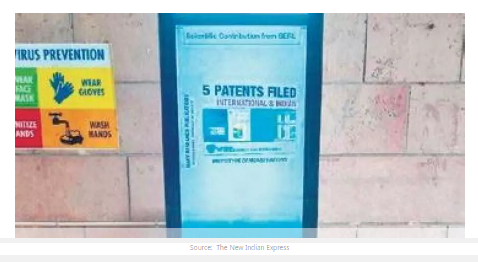…..it is clear that that our survival and the salvaging of our environment are dependent more on technology and not less”. Samuel Florman The Indian Institute of Technology (IIT) Delhi has proven its commitment to sustaining the environment through technology. The premier institute has come up with Vanadium Redox Flow Battery (VRFB) based Charging Station for Electronic Devices. The station has been designed and installed in the IIT Delhi, by the Sustainable Environergy Research Lab (SERL) under the Department of Chemical Engineering. The students have been working on the VRFB and innovating products that answer some of our daily life’s problems. The researcher at SERL developed the second generation prototype so an environmental friendly viable product could be available to society. It can charge electronic devices, like portable chargers, mobile phone, laptop mobile banks, tablets and others for 9 hours.
Professor Anil Verma said that the highly durable VRFB suitable for long discharge time with low cost compared to the conventional battery.The technology is an alternative to diesel generators. VRFB is based on the principle of utilising liquid electrolyte to store electrical energy. On charging, the electrical energy is stored in the liquid electrolyte, and while discharging the stored energy is used for various applications. It can efficiently store and utilise renewable energy when required. It can be used for a wide range of applications such as e-vehicle charging, rural electrification, domestic and commercial power back-up, with zero carbon footprint.
It is non-polluting (no emissions), safe and environmentally friendly, easily scalable and highly durable. One of the significant differences between the flow and conventional battery is the independent scaling of power and energy capacity. The innovation has come at the right time when carbon footprint and e-waste have been a significant concern. The charging station will be replicated and soon commercialised for the public.

